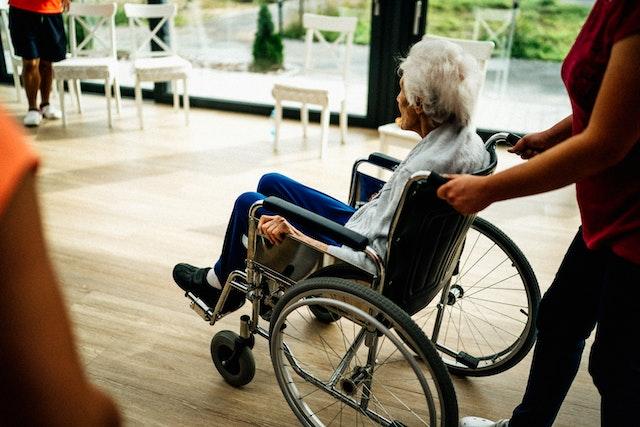Key Takeaways
- Making sure an elderly loved one receives quality care under Medicaid can become overwhelmingly expensive. Many families are caught off guard by the high costs of long-term care, but you don’t have to be. You can work with an NYC Medicaid long term care lawyer to ensure your loved one’s needs are met without facing financial ruin.
- It is highly advised to start planning for long-term Medicaid care while you are healthy, so you can minimize your asset exposure, create and fund an Irrevocable Trust, and make your wishes clear in case you are unable to speak for yourself at a later age.
- You must meet strict qualifications to receive Medicaid coverage. It may be in your best interests to consult with a legal professional about Medicaid eligibility standards.
Why Do I Need a Medicaid Attorney for Long-Term Care?
It’s no secret that most seniors will need some form of long-term care. But the vast majority of American families are unprepared for the financial burden that quality care places on them.
In New York, the cost of home health aides has skyrocketed. Ongoing care can cost more than $10,000 per month, and nursing home care upwards of $15,000 per month. When families are faced with such steep bills, financial ruin is a real possibility.
This is why it’s so important to plan ahead of time, no matter your income level. An elder law attorney experienced in Medicaid planning is an incredible asset when putting together an Aging Plan. Our attorneys can guide you and your family through the twisting maze of Medicaid challenges.

The Importance of Early Estate Planning
There are many reasons why you should engage in estate planning while you are healthy. We’ll name a few below:
1. You can minimize your asset exposure in the event you need to rely on Medicaid.
2. You can create and fund an Irrevocable Trust. This is the gold standard for asset protection. Here’s why: suppose you fund an Irrevocable Trust with certain assets and more than 2.5 years for Community Medicaid or 5 years for Chronic Medicaid pass. Medicaid will not look to those trust assets as available to pay for your care. Learn more about the Medicaid Asset Protection Trusts here.
3. It will be easier for your family to make sure your wishes are kept in case you are unable to speak for yourself.
Important Note: Even without planning, New York law allows certain exempt transfers. You can perform these transfers on the eve of entering a nursing home to preserve some or all of the assets, such as spousal refusal and transfers to disabled children.
Eligibility Determination and Planning
Medicaid provides medical assistance to people who are age 65 or older‚ disabled or blind. To be eligible, an individual must meet certain asset and income guidelines.
Medicaid is a joint federal-state program. It is the single largest payer of nursing home bills in America. For many Americans, it is a last resort option when there is no other way to finance long-term care.
Note that it may be difficult to access all Medicaid benefits without the help of an Medicaid attorney in NYC or Long Island. Contact a lawyer for Medicaid in your area to maximize the benefits your loved one will receive.

Types of Medicaid Long-Term Care
There are two types of Medicaid long-term care: Chronic and Community. Each has very different eligibility guidelines:
Medicaid Nursing Home Care (Chronic)
This type of care involves full-time living in a nursing home. Medicaid will pay for all or part of the cost for an individual’s care.
Assets requirements for Chronic Medicaid in 2023:
- An applicant for Nursing Home Medicaid (Chronic Medicaid) cannot have assets that exceed $30,182.
- This excludes retirement savings as long as they are in the required pay-out status, life insurance policies with a cash surrender value of no more than $1,500.00, and an irrevocable prepaid burial account.
- If married, the spouse not receiving care (community spouse) can have a maximum of $148,620 – unless spousal refusal is utilized.

How “Look Backs” Can Affect Eligibility
When an applicant applies for Nursing Home Medicaid, the local Department of Social Services (DSS) will “look-back” five years at all financial accounts in the name of the applicant and the applicant’s spouse. The purpose of this look-back is to determine whether the applicant (or spouse) has transferred any monies out of his or her name during the past five years.
DSS will penalize the applicant to the extent that assets have been transferred. This will result in a period of ineligibility for Medicaid. For approximately every $14,136.00 transferred, Medicaid will not pay for one month in a nursing home.
Income Requirements for Chronic Medicaid:
- All income of a Medicaid recipient above $50.00 must go toward his or her care.
- There are certain exceptions for married couples. These exceptions allow the spouse who is still living in the community to use a portion of the Medicaid spouse’s income in order to bring the community spouse’s monthly income up to a maximum of $3,715.

Medicaid Home Care (Community)
Community Medicaid pays for part or all of the cost of at-home care. It may also cover certain adult day care programs and needed medical supplies.
Medicaid awards home care coverage based on established need. This is why hiring a lawyer for Medicaid is so important. A Medicaid attorney can help you prove a need for services and get maximum benefits.
The guidelines for Community Medicaid (home healthcare aides) in New York State recently changed. Effective later this year, a look-back period of thirty months (2.5 years) will apply for all transfers made during that period. Prior to this new law, Medicaid planners could make transfers to an irrevocable trust without causing a period of ineligibility.
Assets Requirements for Community Medicaid
- An applicant for Home Care Medicaid (Community Medicaid) cannot have “available resources” that exceed $30,182.
- Certain assets are considered exempt resources when determining eligibility.
Income Requirements for Community Medicaid
- A recipient receiving Medicaid home care can keep $904.00 of income each month.
- Any amount over $904.00 is considered “excess income.”
In New York, we can set up a Pooled Income Trust to capture the excess income to pay bills on behalf of the Medicaid recipient. Non-profit organizations establish and manage Pooled Income Trusts for the benefit of the disabled beneficiaries.

Frequently Asked Questions
Elder law attorneys focus on legal issues affecting the elderly and disabled. They help clients plan for incapacity, Medicaid, business succession, and wealth transfer. Burner Prudenti Law, P.C. is a vocal advocate for entering the third age with a clear plan of action in case of incapacity.
You need to hire an elder law attorney for issues relating to long term care planning, incapacity, or guardianship proceedings. Elder law includes estate planning techniques unique to seniors and disabled persons.
Elder law attorneys are often less costly than general trust and estates attorneys. Many elder law attorneys offer flat rates to encourage clients to ask questions.
The Chronic Medicaid program pays the cost of nursing home care when an applicant meets income and asset requirements. In New York State, a recipient can have no more than $30,182 in liquid assets. Some assets are not counted, such as retirement accounts, prepaid burials, and life insurance with less than $1,500 in cash surrender value. The family home is exempt if a spouse or minor, disabled, or blind child is living there. All but $50 of the recipient’s monthly income goes to the nursing home and Medicaid pays the balance. If married, the community spouse can keep up to $3,216 in monthly income as a spousal allowance. The well spouse can use part of the Medicaid recipient’s income to reach this amount. Medicaid disallows transfers in the five years before applying for Medicaid. For approximately every $14,000 transferred Medicaid refuses to pay for one month of care.
In some instances, a Medicaid applicant can transfer the house on the eve of entering a nursing home. A transfer to a spouse, blind or disabled child, caretaker child, and a sibling with an equity interest, does not violate the look back period. A caretaker child is one who lived in the home for at least 2 years and provided care to the applicant that helped avoid a nursing home stay. The sibling must have lived in the home for the year preceding and have an equity interest in the home.
The Community Medicaid program pays the cost of home care services when an applicant meets income and asset requirements. In New York State, a recipient can have no more than $15,750 in liquid assets. Some assets are not counted, such as retirement accounts, prepaid burials, and life insurance with less than $1,500 in cash surrender value. Unlike nursing home Medicaid, recipients can keep their monthly income. Although allowed only $879.00 of monthly income, a Pooled Trust can capture the rest of the income to pay bills.
Starting October 1, 2020, New York State begins a 30 month look back period for home care Medicaid. It is unclear if the penalty periods will be the same as for Nursing Home Medicaid.
Once you submit a Medicaid application, getting the approval and having an aide in place can take between 45 days and 3 months. If you need “immediate need” Medicaid, the application is fast tracked and you may qualify in less than a month. Gathering the necessary documents to submit the application can be time consuming.
There is a 5 year look back for nursing home services. The look back is to determine if the applicant (or spouse) transferred assets in the 5 years immediately before an application for Chronic Medicaid. The Department of Social Services will penalize the applicant for any assets transferred. For approximately every $13,000 transferred, Medicaid will not pay for one month in a nursing home.
A 30 month look back period for Community Medicaid is being phased between October 1, 2020 and January 1, 2021.
A Medicaid applicant can have no more than $15,750 in cash assets to qualify for Medicaid. Exempt assets include retirement accounts (must be taking the RMD), life insurance with a cash surrender value of $1,500 or less, and a prepaid burial. A home in not counted if the applicant is receiving home care or a spouse, disabled child, blind child, or minor child is living in the home. Each year the recipient must recertify to qualify.
You can keep up to $3,216.00 in monthly income. If your income is less than this amount, you can use part of your spouse’s income to bring you up to $3,216.00 per month.
New York allows a Medicaid recipient to have up to $15,750 in assets and $879.00 per month in income. Certain assets are exempt, including IRAs when the required minimum distribution is being taken, life insurance (except for the cash surrender value), and under some circumstances a house. Medicaid eligibility guidelines further depend on whether the recipient needs home care Medicaid (Community) or Nursing Home Medicaid (chronic).
In addition to meeting financial guidelines, the applicant must have a medical need for care. This means the applicant needs help with “Activities of Daily Living,” which include eating, bathing, dressing, continence, toileting and transferring/mobility.
In New York State a house is an exempt asset during the lifetime of the Medicaid recipient. But, Medicaid can recover the cost of services to an individual over the age of 55 from the recipient’s estate. At the time of the Medicaid recipient’s death, if the house is in a trust, the house does not go through probate. This avoids Medicaid having an opportunity to recover against the house.
Spousal refusal is when the “well” spouse refuses to pay for the care of the spouse entering a nursing home. Medicaid cannot deny the applicant when the spouse declines to contribute. But because the spouse is a “legally responsible relative”, Medicaid can seek recovery. But Medicaid can seek recovery against the spouse when his or her assets exceed $128,640.00.
A 529 plan is an available resource for Medicaid eligibility purposes. Additionally, distributions to the student within the look back period count as transfers. For every $13,407 transferred, there is a one month penalty against the applicant.
Yes, Medicaid should supplement your insurance, not replace it.
In NYS, Medicaid covers hospice care when recipients have a terminal illness with a medical prognosis of less than six months to live if the illness runs its normal course.
Some Assisted Living Facilities accept Medicaid. If so, your Community Medicaid will pay for assisted living. If the Assisted Living Facility does not accept Medicaid, your Pooled Income Trust can pay for the facility if you have enough income.
Even if you have simple assets, you should consult an attorney before applying for Medicaid on your own. Elder law attorneys know the complex Medicaid guidelines.
You can use a Pooled Income Trust to qualify for Community Medicaid when your monthly income exceeds $879.00. You deposit your excess income with the Pooled Income Trust each month. The trust pays any bills you submit each month from this “excess” income.
One major reason families seek estate planning attorneys is for asset protection. Irrevocable trusts protect assets from a nursing home. But your parents must fund the trust 5 years before needing care. If one of your parents needs nursing home care immediately, he or she may transfer assets to the spouse. But the “well” spouse can only have $128,640.00 in countable assets. If the “well” spouse has assets over that amount, Medicaid will not deny care to the nursing home applicant. But, Medicaid will come after the spouse for the cost of care.
If Medicaid is paying for your care in a Nursing Home, all of your income is paid to the facility except for $50.00. If you are married, your spouse can use as much of your monthly income to bring him or her to $3,296.00.
A Medicaid Asset Protection Trust is an irrevocable grantor trust that allows the Grantor to qualify for Medicaid long term care. The Grantor can retain the right to income, but is not entitled to any principal in the trust. The Grantor can reserve the right to change the Trustee and beneficiaries.
Medicare is a federal program providing health coverage to persons 65 or older or those with a qualifying disability. Medicaid is state specific and requires recipients meet strict income and asset guidelines.
Medicare will pay for rehabilitation in a facility when a patient has a qualifying stay in a hospital, i.e. admitted to the hospital for 2 nights. The first twenty days of rehabilitation are completely covered by Medicare. The 21st day through the one hundredth day will have a co-payment of $170.50 per day. Your Medicare supplemental plan may cover the co-payment.
Medicaid will cover the cost of a home health aide through the Community Medicaid program or an extended nursing home care through the Chronic Medicaid program.
Medicare does not cover long-term care in your home. Medicare provides limited home care services if you are both homebound and need one or more of the following: skilled nursing care, physical therapy, speech pathology services, or occupational therapy. These combined services cannot exceed 8 a day or 28 hours a week, except in limited circumstances.





